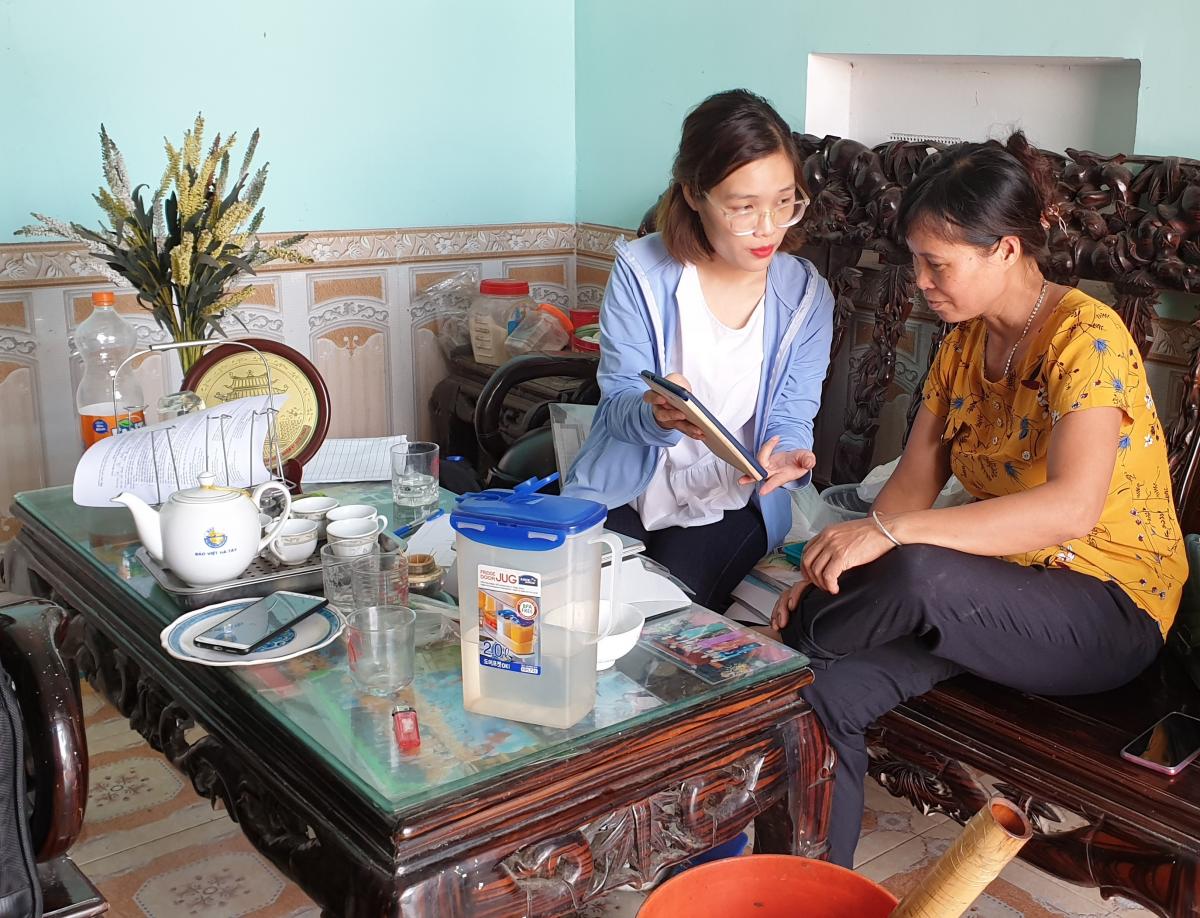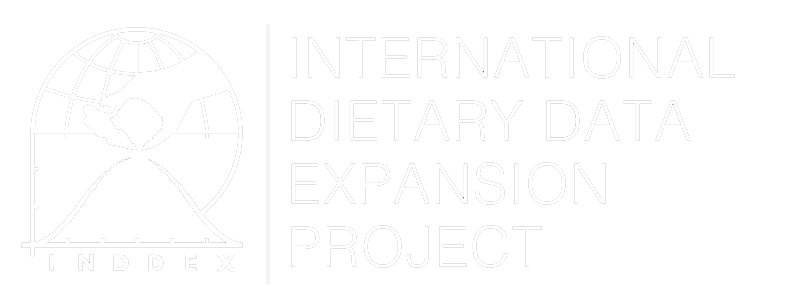
Background
The International Dietary Data Expansion (INDDEX) Project, implemented by the Tufts University Gerald J. and Dorothy R. Friedman School of Nutrition Science and Policy with funding from the Bill & Melinda Gates Foundation, is designed to tackle the critical issues of high cost, inaccessibility, low quality, and under-use of dietary data that have long impaired effective food, nutrition, and agricultural policy and programming in low- and middle-income countries (LMICs).
The goal of the INDDEX Project is to facilitate LMICs increased acquisition and use of high quality, timely food consumption data to improve agriculture, food security, and nutrition outcomes. We do this by developing dietary data collection tools and resources that promote streamlined collection, use, and interpretation of high-quality quantitative dietary data.
Highlighted Achievements
- Developed the INDDEX24 Dietary Assessment Platform and supported data repositories (FAO/WHO GIFT) to standardize and streamline the collection, analysis, and use of individual-level dietary data;
- Improved the design and use of household consumption and expenditure surveys (HCES) for food consumption analysis;
- Upgraded West African Regional Food Composition Data;
- Demonstrated how to use 'fit-for-purpose’ indicators of consumption patterns, dietary adequacy, and food and nutrient sources through the Data4Diets resource; and
- Supported global stakeholders to apply these methodological and technical advances for their own policy objectives.
Our Current Work
The INDDEX Project continued into its second phase (2020-2022) with a focus on developing partnerships and an institutionalized technical support infrastructure to ensure the long-term availability and use of the INDDEX24 Dietary Assessment Platform.
We continued to advocate for improved dietary data collection methods to facilitate increased acquisition of high-quality dietary data in LMICs. This advocacy work was intended to increase awareness among a variety of stakeholders of the importance of dietary data and the usefulness of the INDDEX24 Dietary Assesment Platform. As of June 1, 2022, the INDDEX24 Dietary Assessment Platform has been transitioned to the Intake Center for Dietary Assessment at FHI Solutions. INDDEX is pleased to continue offering access to our platform through a new host institution. Researchers interested in using the INDDEX24 Dietary Assesment Platform are invited to contact the Intake Center for Dietary Assessment team for more information.
Our Past Work
The first phase of the INDDEX Project (2015-2020) produced the INDDEX24 Dietary Assesment Platform to standardize and streamline the collection and analysis of individual-level dietary data. The INDDEX24 Dietary Assessment Platform (consisting of the Global Food Matters Database and the INDDEX24 Mobile App) has undergone rigorous feasibility testing and validation in both West Africa (Burkina Faso) and Southeast Asia (Viet Nam). In addition, the accuracy, cost, and cost-effectiveness of the INDDEX24 Dietary Assessment Platform has been assessed in comparison with traditional pen-and-paper dietary data collection. This work has been carried out in close collaboration with the National Institute of Statistics and Demography in Burkina Faso and the National Institute of Nutrition in Viet Nam, as well as our partners at FAO and IFPRI and our technology partners Caktus Consulting Group and Dimagi, Inc.
In the first phase of our work, we aimed to demonstrate how to select data collection methods and data sources, and effectively use ‘fit-for-purpose’ indicators. To this end, we developed the Data4Diets platform, which includes an inventory of more than 40 dietary, nutritional, and food consumption indicators and detailed information on data sources, methods, and case studies illustrating applications of these data in policy-oriented research.
In addition, the INDDEX Project sought ways to improve the design and use of Household Expenditure and Consumption Surveys (HCES), which contain a great deal of information about food acquisition and consumption, are conducted once every 3-5 years in more than 125 countries, have large samples, and are often statistically representative at subnational levels. Our work included publishing papers on getting the HCES food list right, validating use of the adult male equivelant method, and measuring food consumed away from home, among other topics. In partnership with IFPRI and FAO, we led trainings on the ADePT tool and nutrition indicators, and conducted analyses in both Burkina Faso and Viet Nam to show innovative approaches to using HCES data (publications for each country forthcoming).
Work under the first phase of the INDDEX Project (2015-2020) was carried out in close partnership with the International Food Policy Research Institute (IFPRI) and the Food and Agriculture Organization of the United Nations (FAO).
